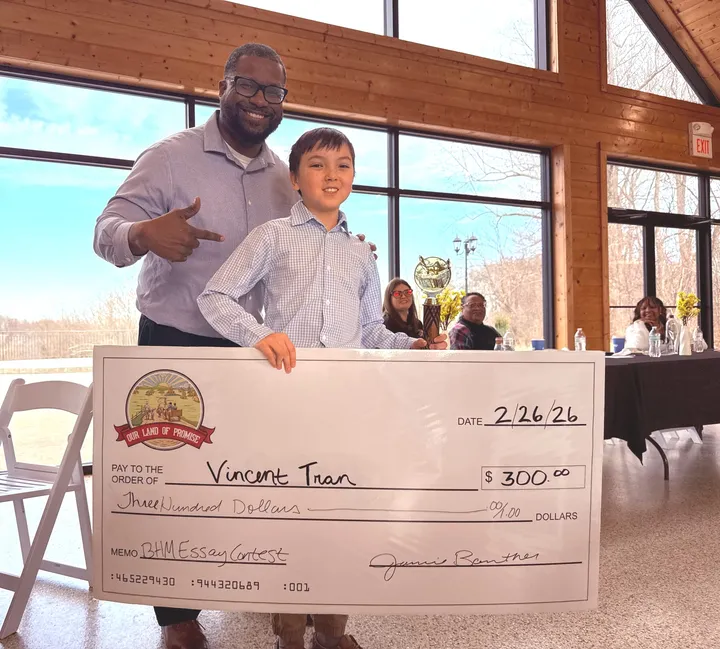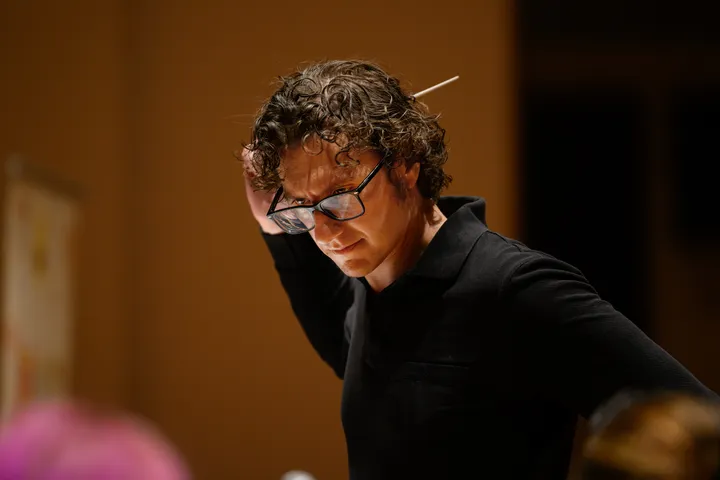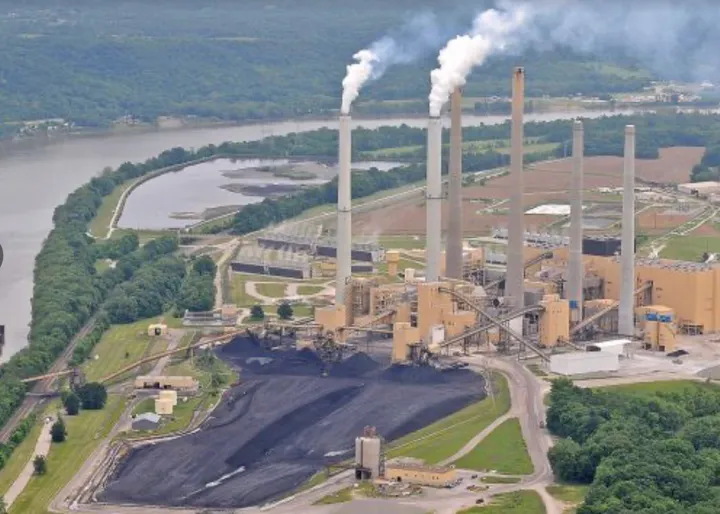No stranger to protest
On eve of No Kings Day, a look back at Civil Rights action in Berea

Sharyn Mitchell remembers when Berea College cancelled classes and foot the bill for students to participate in the Selma to Montgomery, Alabama, march.
"The College paid for the busses, and told the students they should go," Mitchell, the College's archivist, and a member of Berea's Human Rights Commission, told The Edge in an interview. "But local families participated, too. They marched, they sent money, they were supportive of what was going on there."
That was in 1965 when the Civil Rights protests were at their height.
Now, 60 years after the Selma march, Berea, a town expressly founded on the notion that all humans are equal, finds itself again at a moment in time where there is civil unrest across the US, and it's not clear where things will lead.
Open carry more common
"What is happening now is so unusual," reflects Eddie Kennedy, founder of the Berea Community School drama program, and the namesake of the school's theater. "My shock is deep and genuine," said Kennedy, taught at Community for 33 years, retiring in 2006.
Kennedy told The Edge that he is upset by how some residents in town have been persuaded they are under threat from those who disagree with this administration. Since covid, Kennedy said he has seen an uptick of persons with " "open carry" weapons on their hips on several occasions while shopping at WalMart. "What are they afraid is going to happen?" he asked. "It's disturbing."
He believes this fear is thanks in part to what he said is the "two-side-ism" of the national media where an argument and a counterargument are presented.
"There are not two sides in all situations. Sometimes it's just about what is humane," Kennedy said, specifically referencing how immigration policy has, under Trump, become central to all federal policy, and which has turned aggressive, with multiple accounts of immigration control enforcement engaging in lawlessness and violence.
"I am concerned about the success they are having," he continued, noting that current federal policies have all the earmarks of fascism. "It's a horrible way to live. We fought fascism in World War II and then we created NATO to protect against it. Why shouldn't we be against fascism?"
Fascism is often described as a system of policies that suppress opposition, overtly favor some and not others, and actively persecute one or more segments of society, often imprisoning them without due process.
The Edge has received anonymous commentary denoting that not everyone sees this administration as fascist, even if the dissenters do not specify why not, nor identify themselves.
According to Mitchell, however, it is more likely that people are willing to openly share their illiberal views. "They feel more comfortable now. Before, it was more underground," she said.
Standing up for neighbors
Just as they did during the Civil Rights movement, in Berea, many locals are participating in the No King's Day protest scheduled to take place tomorrow at the intersection of Walnut Meadow Road and Ellipse Street.
The No Kings Day movement is organized by a national coalition that opposes authoritarianism, which the group has specified means the Trump administration.
"We want to demonstrate the diverse nature of the numbers of people here in Madison County who [want] to stand up for basic freedoms, to stand up for liberty, to stand up for democracy, and to stand up for their neighbors," Lisa Abbott, a co-organizer of tomorrow's No Kings Day protest in Berea, told The Edge in an interview.
Deadly Berea riot
Despite the town's founding being predicated on equal rights for all, not all Bereans were supportive of the Civil Rights movement when it began. Berea's reputation for its progressivism was overshadowed in 1968, when a Christian Nationalist rally here left two dead and many others wounded from gunfire.
That made Berea the site of what author Matthew Algeo describes as, "perhaps the Civil Rights era’s only instance of open armed conflict between white supremacists and black counter-protesters." Algeo's book, All This Marvelous Potential: Robert Kennedy's 1968 Tour of Appalachia, gives a full recounting of the bloody ordeal.
A black man and a white man were shot dead after gunfire erupted at a Labor Day weekend rally staged by out-of-town members of the National States' Rights Party. About 300 Bereans, mostly men, according to Algeo's account, attended the rally that was held at what was then a vacant used car lot on US Hwy 25, at the northern end of town. When local blacks learned about the rally, they came to check it out, according to Algeo's account.
"Nobody knows who fired the first shot, but over the next ten minutes, the two sides exchanged more than forty shots in a running gun battle," Algeo said in an interview with the Daily Yonder.
The leader of the event was the itinerant Church of Jesus Christ minister, Charles "Connie" Lynch, who wore a vest made from a Confederate flag and preached in favor of segregation and George Wallace for president, according to Algeo.
"He used monkey language and bad stuff like that," recalls Mitchell. "After that, in response, Berea formed the Human Rights Commission."
'Joy and peace'
"There aren't going to be a lot of long-winded speakers tomorrow," Abbott said of the local upcoming protest. "What will be a success for me is if there are new people getting involved and are feeling welcomed. Are new people feeling encouraged and inspired," she said.
Abbott said the group is relying on "strength in numbers" should there be any aggravation from bystanders. "I think the prospects for a peaceful, joyful, very large No Kings Day are really high," Abbott said.
Kennedy said it is important for him that his former students and neighbors see him at the protest. "I want people who know me to see me speaking up," he said, noting that he has been surprised that others he once thought willing to defend democracy are either shrinking away or supporting the administration.
"It saddens me," he said.
Abbott said the local group has an assembly permit in anticipation of the attendance of several hundred protesters, and that they found City Hall to be amenable to work with. "It's a lot to manage, but the mayor and the police have been great to work with," Abbott said.
In a previous interview with Mayor Bruce Fraley, he told The Edge he feared that the "national political division and bitterness" might adversely impact local government. "There's a lot of wisdom in our state motto, 'United we stand, divided we fall,'" Fraley said in the interview. "So becoming divided as citizens and allowing those divisions to impact our government structure, we need to avoid that," he concluded.
The No Kings Day march in Berea will take place from 1PM to 2:30PM at the corner of Walnut Meadow Road and Ellipse Street. All protestors are asked to remain on the sidewalks, and to allow space for passers by. For those interested in participating in a special "heart beat" drum performance, it will take place in the same location at 12:30PM. For a map of the location and more information, visit the No Kings Berea page online.



